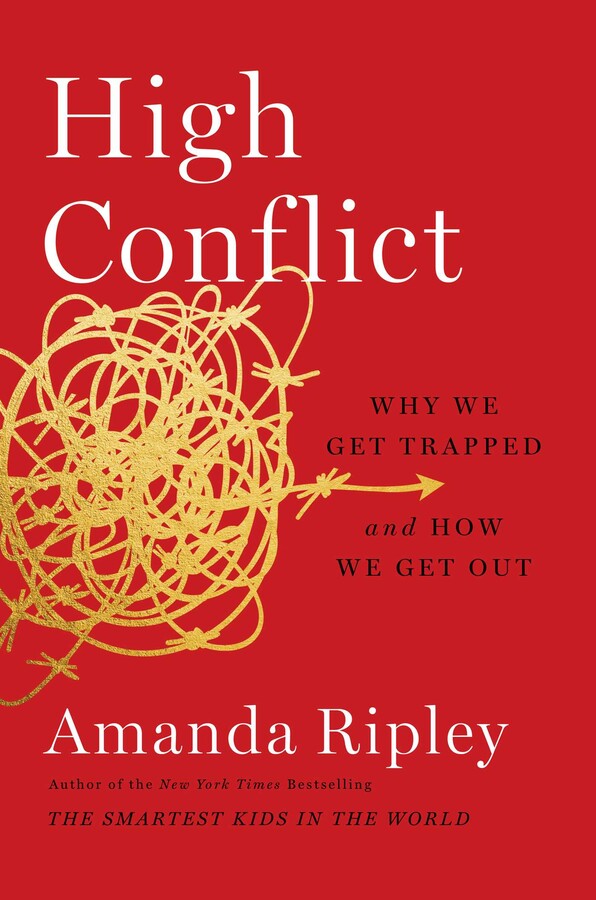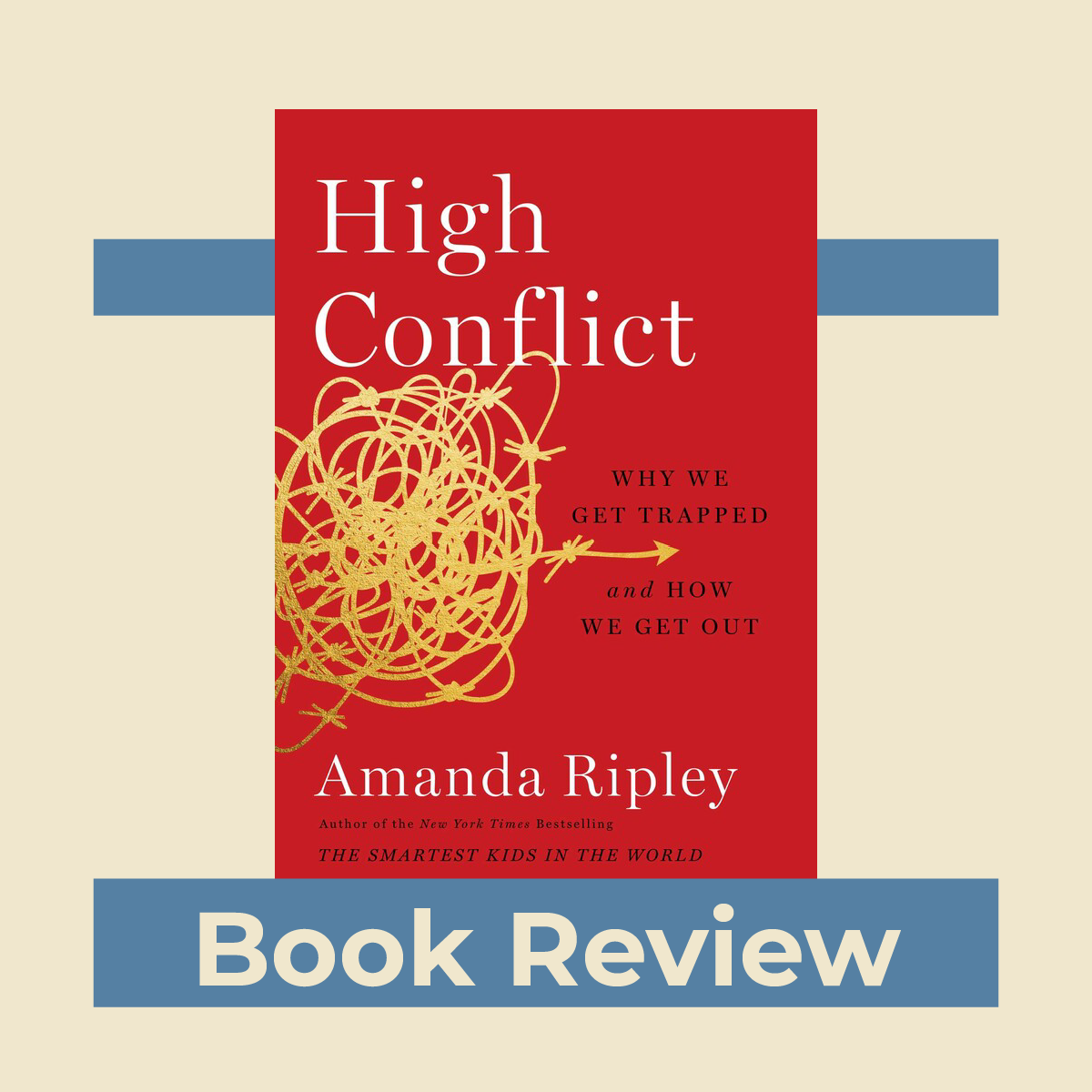
How Conflict: Why We Get Trapped and How We Get Out by Amanda Ripley
Review by Jennifer Sullivan
It was only because I was midway through Amanda Ripley’s awareness-sharpening new book High Conflict that I winced when I heard President Biden’s quip about Neanderthal thinking. The quick flash of glee – totally, what a stupid time to lift mask mandates – was quickly overshadowed by a line of Ripley’s: “[i]f winning means your neighbors get humiliated, you haven’t won.” When you start to see even your team’s triumphs as tinder, political sniping becomes a little less fun. And that’s the point.
Ripley, a former Time magazine writer and longtime journalist and author, explains that she came to the topic of high conflict – which she distinguishes from “the useful friction of healthy conflict” – after the 2016 U.S. presidential election, when she found herself despairing over what felt like the death of curiosity. She set out to better understand our worldwide polarization problem, and tells us what she learned through five main stories, those of an English environmental activist; a former Chicago gang member; a Colombian social justice advocate; a New York synagogue; and the CUC’s co-founder Gary Friedman.
In watching each of these characters submit to – and then outsmart – the gravitational pull of high conflict, the reader sees Ripley’s thesis prove itself: people behave surprisingly similarly across very different types of energy-sucking conflict “Tar Pits.” And despite its small scale, the story of Gary’s friction-filled tour of Muir Beach politics makes Ripley’s point most profoundly: no matter who you are, the allure of high conflict can feel irresistible. Liberation often requires denying your every human impulse to writhe around, to call in your friends, to post a comment telling your conservative Uncle George just how wrong he is.
Ripley does a masterful job of connecting dots between her main characters’ stories, inspiring in the reader an appreciation for complexity, how to hold it, how to make room for curiosity and humility without giving up what’s most important to one’s soul. For readers who have studied the V, this book confirms a hunch many of us have had: the world needs CUC training.
